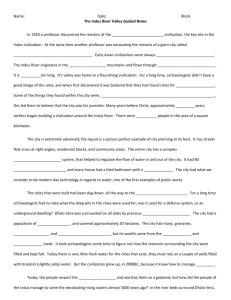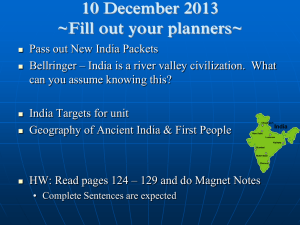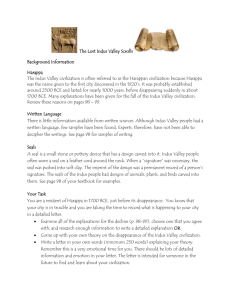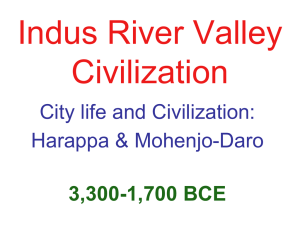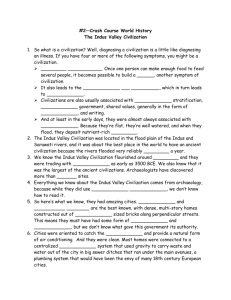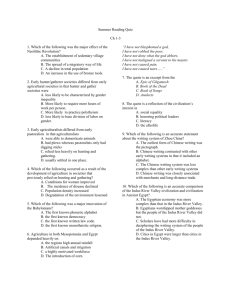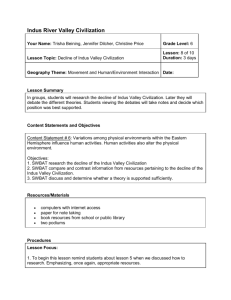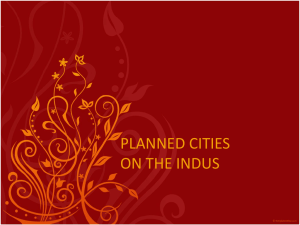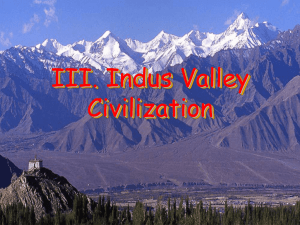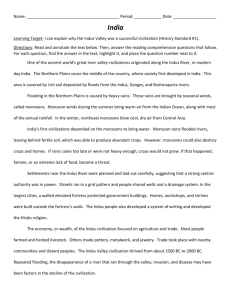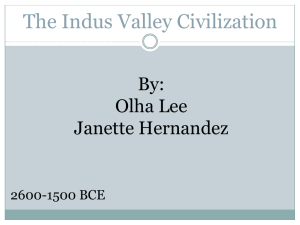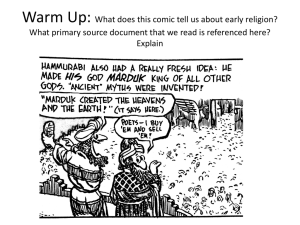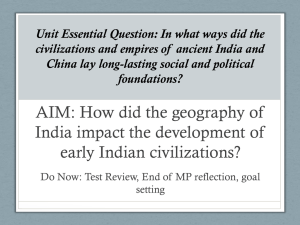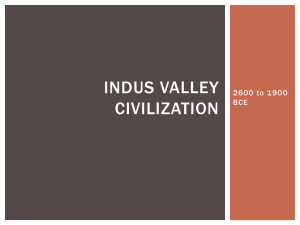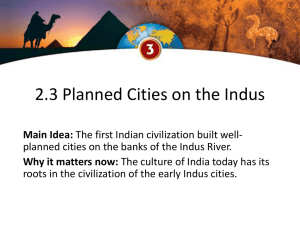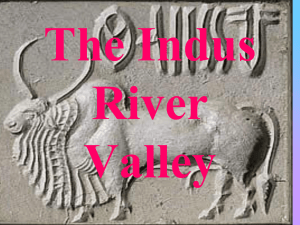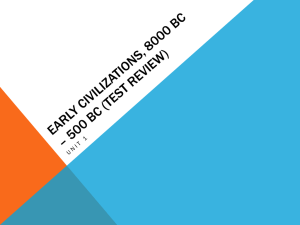Ancient Civilizations: Indus River Valley
advertisement
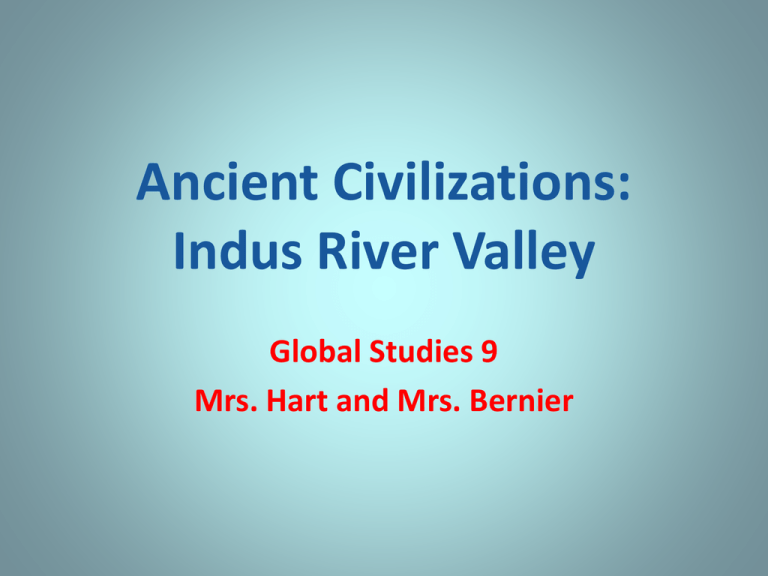
Ancient Civilizations: Indus River Valley Global Studies 9 Mrs. Hart and Mrs. Bernier Geography of India • India is a subcontinent that extends southward from mainland Asia into the Indian Ocean. Geography of India • India is surrounded on the north by the Hindu Kush and Himalayan Mountains, which geographically isolated the region. • Monsoons, seasonal winds, bring rain every summer, which farmers use to grow crops. Indus River Valley Civilization • The Indus River Valley civilization flourished about 2500 years ago in the western part of South Asia, in what today is Pakistan and western India. The twin cities of the Indus River Valley civilization were known as Harappa and Mohenjo-Daro. Indus River Valley Twin Cities: Harappa and Mohenjo-Daro • Roads were laid out in a grid pattern. • Each city was dominated by a fortress or a temple on a hill. • Graneries stored crops grown outside the city. Indus River Valley Twin Cities: Harappa and Mohenjo-Daro • Houses were made of brick, had plumbing with baths, and chutes that led to sewers. Indus River Civilization Social Structure 1. Gods and Goddesses 2. Priest and Scholars 3. The Rajas and their noblemen 4. Merchants, farmers, land owners, and craftsmen 5. Servants, workers, wage earners Indus River Civilization: Religion • Like other civilizations, the people were polytheistic in their religious beliefs. • A mother goddess, the source of creation, was widely honored. Indus Valley Civilization: Religion Indus people also worshipped sacred animals, including the bull. These practices later influenced other Indian beliefs including the veneration of cattle. Decline and Disappearance of the Indus Valley Civilization • Damage to the environment; too many trees cut down to fuel brick ovens. • Possible volcanic eruption. • Devastating earth-quake. Civilization Decline: Aryan Invaders • 1500 B.C., nomadic warriors called Aryans conquered the Indus Valley, and the cities were soon abandoned and forgotten.

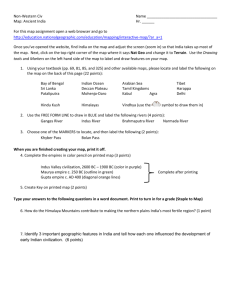
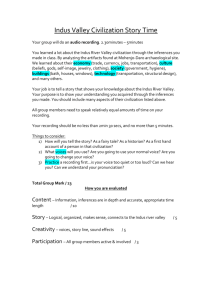
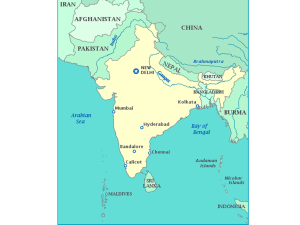
![Indus[1] - ridgeaphistory](http://s3.studylib.net/store/data/006736077_1-c59280ecd30594bac8ab21ec7bce4db4-300x300.png)
